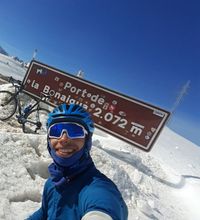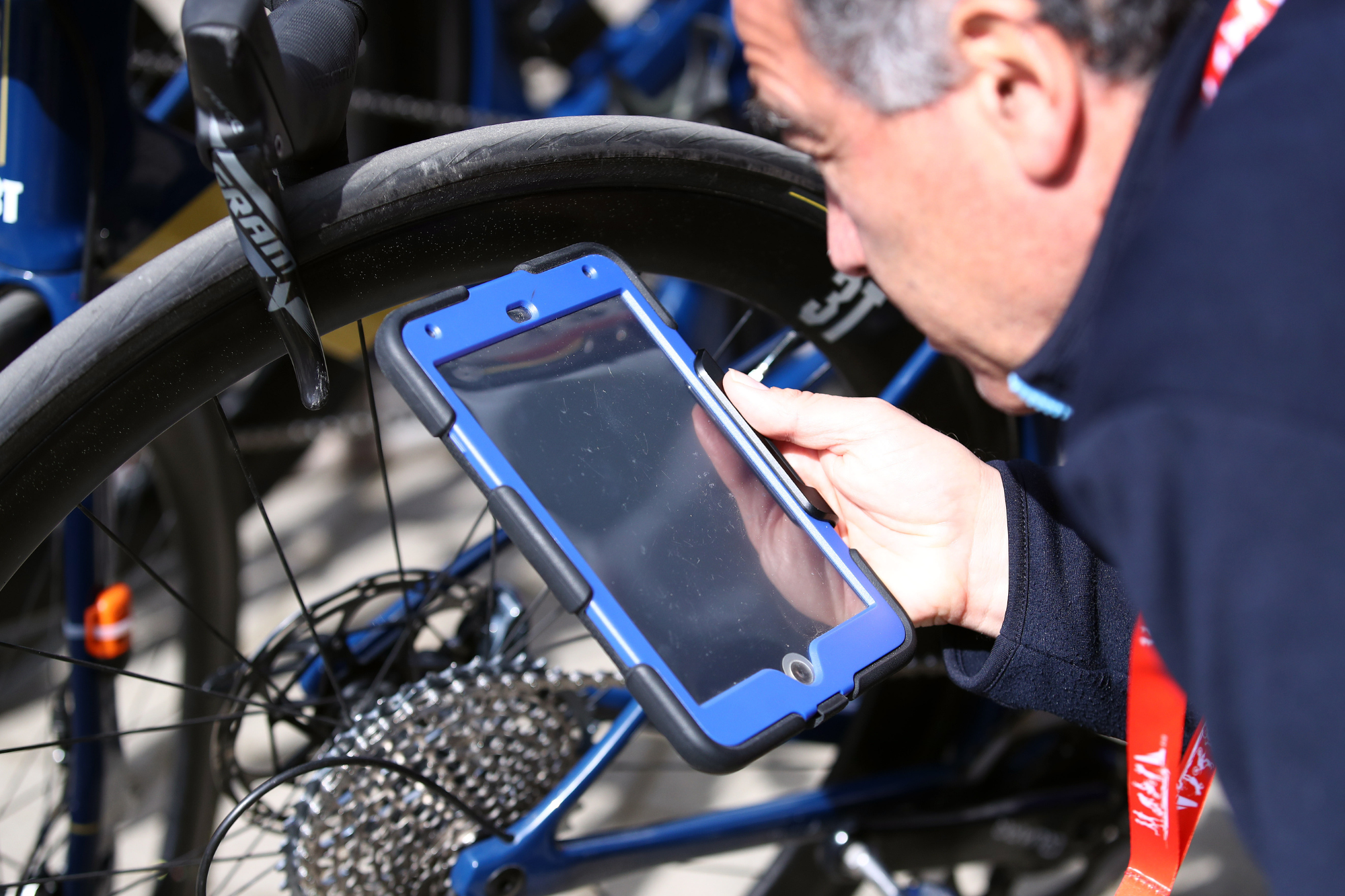'We are not afraid': UCI to pay for 'qualified information' relating to possible motor doping
President David Lappartient also says that he is "not afraid to to catch a top rider" should they be using motored assistance inside their bike


The latest race content, interviews, features, reviews and expert buying guides, direct to your inbox!
You are now subscribed
Your newsletter sign-up was successful
In a seismic and unexpected move, the UCI is planning on paying informants and whistleblowers for information relating to the potential act of motor doping in professional cycling.
The governing body’s president, David Lappartient, has told the Ghost in the Machine podcast that they are currently working on introducing a system whereby people will receive a financial package for giving credible information that could lead to the detection of motors.
To date, there has only been one confirmed case of technological fraud in a professional race, that of Belgian cyclocross rider Femke van den Driessche in 2016, but rumours around the practise refuse to go away. In expressing his concern that motors might be plaguing the highest echelons of the sport, Lappartient said that “if we have a case of cheating with a motor in a bike, it will destroy our sport.”
Painting a grave prognosis of the situation, Lappartient revealed that the UCI will soon pay for “qualified information… we are not afraid to have this information and to then verify it ourselves. We need to be sure that nobody will come to us with wrong information for money [so] we will check and pay [if it’s credible]. This is a way to show that we really take this seriously.”
Allegations of motor doping frequently resurface, with Sepp Kuss being accused by a former ProTour team manager of having a motor in last year’s Vuelta a España although no evidence was provided, while in May a sponsor of Astana-Qazaqstan withdrew from an amateur race after other riders alerted organisers to their suspicions about his performance. The rider in question denied any wrongdoing.
Speaking on the seven-part podcast series that investigates motor doping, Lappartient struck a worried but defiant tone, saying on the eve of the Tour de France that “if we need to catch one of the top riders in the world, I am not afraid of that. If this happens one day it will be a drama for our sport, but at least we would have done what we had to do.”
Currently, the UCI has a trio of detection systems in place to detect possible technological fraud: two types of x-ray machines and a magnetic iPad scanner; the UCI revealed earlier this week that they they'd be piloting a new detection system during the Tour, without expanding further. Lappartient expressed his uneasiness with the amount of bike changes in races, and also slammed the iPad system – echoing comments from across the sport.
The latest race content, interviews, features, reviews and expert buying guides, direct to your inbox!
“I do believe that the tablets are maybe not necessary and you can cheat even with a tablet,” he said. “I don’t trust that the tablets are strong enough to fight against technological fraud. It’s better than nothing, but it’s not consistent enough, and that clearly isn’t enough.”
The surprising admission from Lappartient comes just weeks after the UCI dismissed former Australian pro Mick Rogers from his role in leading the fight against motor doping. His replacement is former criminal investigator Nick Raudenski who has promised to thoroughly investigate all alleged cases of motor use in cycling, even if it dates back several decades.
Also speaking on the Ghost in the Machine podcast, Raudenski said: “I think the technology is out there. I think it exists and I think if there is enough money to throw at a problem or a situation, then there is enough money to provide a solution that will likely not be so easy to detect.”
Stefano Varjas, a man nicknamed the inventor of motor doping after claiming he gave a Tour de France team exclusive rights to his motor technology for $2m in 1998, has previously informed the podcast of the various different types of motors that could be in use. Raudenski said that Varjas “is one [producer] that we know about – I’m concerned by the ones we don’t.”
Raudenski added that the “UCI is taking it seriously – it’s why we’re investigating, developing and advancing it [the combative measures] from where we’ve come from in the past because the rumours aren’t going away, the allegations are there, there are questions about superhuman performances, and so we have to be awake and be able to answer those [questions] and at least be satisfied that we have done everything we can to try and least assess the situation.”
A freelance sports journalist and podcaster, you'll mostly find Chris's byline attached to news scoops, profile interviews and long reads across a variety of different publications. He has been writing regularly for Cycling Weekly since 2013. In 2024 he released a seven-part podcast documentary, Ghost in the Machine, about motor doping in cycling.
Previously a ski, hiking and cycling guide in the Canadian Rockies and Spanish Pyrenees, he almost certainly holds the record for the most number of interviews conducted from snowy mountains. He lives in Valencia, Spain.
